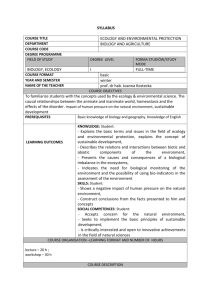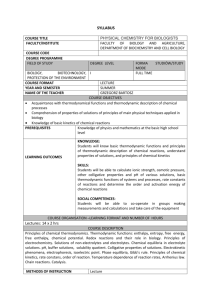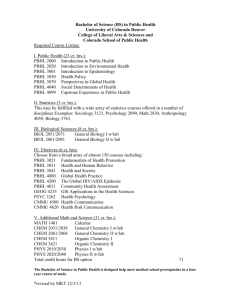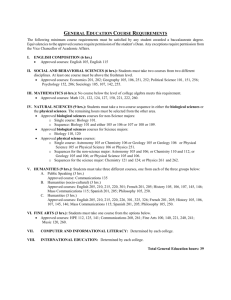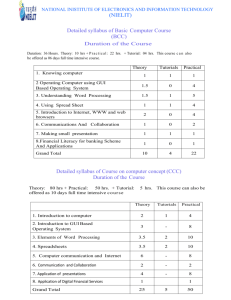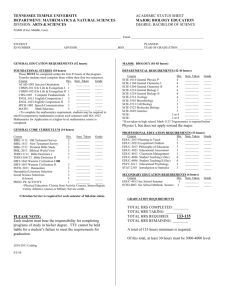SYLLABUS COURSE TITLE PHYSICS WITH BIOPHYSICS Faculty
advertisement
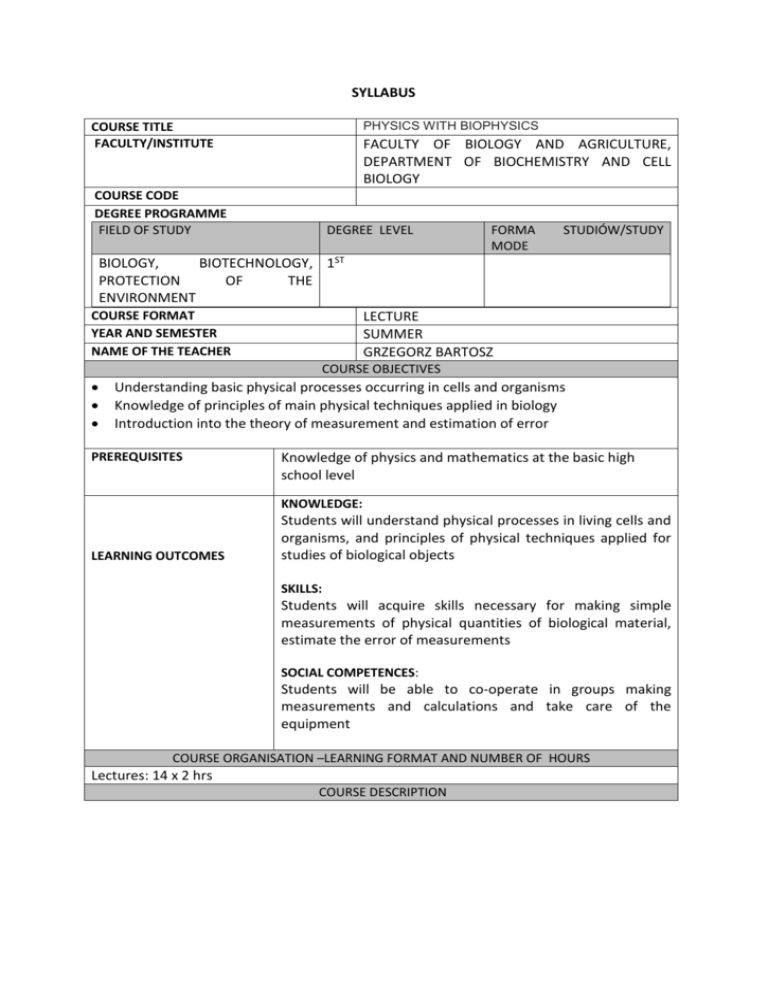
SYLLABUS COURSE TITLE FACULTY/INSTITUTE PHYSICS WITH BIOPHYSICS FACULTY OF BIOLOGY AND AGRICULTURE, DEPARTMENT OF BIOCHEMISTRY AND CELL BIOLOGY COURSE CODE DEGREE PROGRAMME FIELD OF STUDY DEGREE LEVEL FORMA MODE STUDIÓW/STUDY BIOLOGY, BIOTECHNOLOGY, 1ST PROTECTION OF THE ENVIRONMENT COURSE FORMAT YEAR AND SEMESTER NAME OF THE TEACHER LECTURE SUMMER GRZEGORZ BARTOSZ COURSE OBJECTIVES Understanding basic physical processes occurring in cells and organisms Knowledge of principles of main physical techniques applied in biology Introduction into the theory of measurement and estimation of error PREREQUISITES Knowledge of physics and mathematics at the basic high school level KNOWLEDGE: LEARNING OUTCOMES Students will understand physical processes in living cells and organisms, and principles of physical techniques applied for studies of biological objects SKILLS: Students will acquire skills necessary for making simple measurements of physical quantities of biological material, estimate the error of measurements SOCIAL COMPETENCES: Students will be able to co-operate in groups making measurements and calculations and take care of the equipment COURSE ORGANISATION –LEARNING FORMAT AND NUMBER OF HOURS Lectures: 14 x 2 hrs COURSE DESCRIPTION Physics as a synthetic science about the properties of the matter. Fundamental interactions in nature. Elements of the structure of matter. Wave-corpuscular dualism. Types of electromagnetic radiation. Spectroscopy and spectrophotometric research techniques. Turbidimetry, nephelometry. Fluorescence, fluorimetry. Elements of optics. Optical and elektron microscopy. Tunnel and atomic force microscopy. Optics of vision. Hydrodynamics, viscosity. Acoustics. Heat exchange, direct and indirect calorimetry. Electricity. Methods of measurements of electric quantities including electric potentials in living organisms. Ionizing radiation and its interactions with the matter. Biological effects of ionizing radiation. Diffusion. Structure of cell membranes, membrane transport. METHODS OF INSTRUCTION REQUIREMENTS AND ASSESSMENTS GRADING SYSTEM TOTAL STUDENT WORKLOAD NEEDED TO ACHIEVE EXPECTED LEARNING OUTCOMES EXPRESSED IN TIME AND ECTS CREDIT POINTS LANGUAGE OF INSTRUCTION INTERNSHIP MATERIALS Lecture Written open test (30 questions) Grade 5, > 94% ; Grade 4.5, 90-94%; Grade 4, 8089%; Grade 3.5, 70-79%; Grade 3, 60-69% correct answers Lectures: 28 hrs Indoor work: 30 hrs Exam: 2 hrs In total: 60 hrs 3 ECTS English n.a. PRIMARY OR REQUIRED BOOKS/READINGS: S.A. Kane (2010) Introductory Physics for the Life Sciences: Resources for Teaching Premedical Physics. Haverford J. Newman (2008) Physics of the Life Sciences. Springer SUPPLEMENTAL OR OPTIONAL BOOKS/READINGS: B.K. Ahlborn (2004) Zoological Physics. Springer

